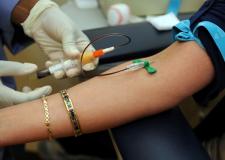Why We Need to Rethink Ethnicity-Based Genetic Testing
By Shivani Nazareth,
US News & World Report
| 11. 07. 2016
A recent study noted racial bias in the genetic databases that are important to furthering research in precision medicine. The data is skewed toward a European Caucasian population, which makes it difficult to interpret genetic variants in minority groups. As the U.S. population increasingly diversifies, we need to challenge ourselves to do better. A good place to begin is pregnancy, when nearly every woman in the U.S. is offered genetic carrier screening.
Carrier screening is the practice of testing of both mom and dad for inherited conditions that may be passed along to their baby. A pregnant woman is typically offered screening – for one condition, a few conditions or a panel – based upon her self-reported ethnic category. As an example, black patients are offered screening for sickle cell disease, Southeast Asian patients for thalassemias and Ashkenazi Jewish patients for a panel that includes Canavan and Tay-Sachs disease, among others. This approach is based on a public health model that factors cost and the availability of a reliable test into the screening equation. In the past few...
Related Articles
By Emma McDonald Kennedy
| 11.24.2024
Gig work in childcare, nursing, and transportation; non-invasive prenatal testing; gene editing; and space expeditions can all be attributed to one mistaken, pervasive assumption: that “we can innovate our way out of the thorniest problems, including reproductive ones” (22). In Reproductive Labor and Innovation: Against the Tech Fix in an Era of Hype, feminist political theorist Jennifer Denbow demonstrates why the U.S. has put so much of its hopes, and its money, on technological “innovations”––and why that hasn’t addressed...
By Arwa Mahdawi, The Guardian | 11.19.2024
Photo "Elon Musk Presenting Tesla's Fully Autonomous Future" by Steve Jurvetson on Flickr (CC BY-NC-SA 2.0)
Is Elon Musk the dinner party guest from hell? It sure seems that way. Not only is the man desperate for people to...
By Colette Shade, The New Republic | 11.14.2024
Photo "Elon Musk" by Daniel Oberhaus on Flickr (CC BY-NC-SA 2.0)
Would Donald Trump have won reelection if not for the backing of the world’s richest man? We’ll never know. But that man, Elon Musk, gave Trump more than $130...
By Carter Sherman, The Guardian | 11.17.2024
The anti-abortion movement is ready for its comeback in 2025.
With the return of Donald Trump to the White House, complete with a Republican-dominated Congress, anti-abortion groups are unfurling ambitious lists of policies they hope to see ...




